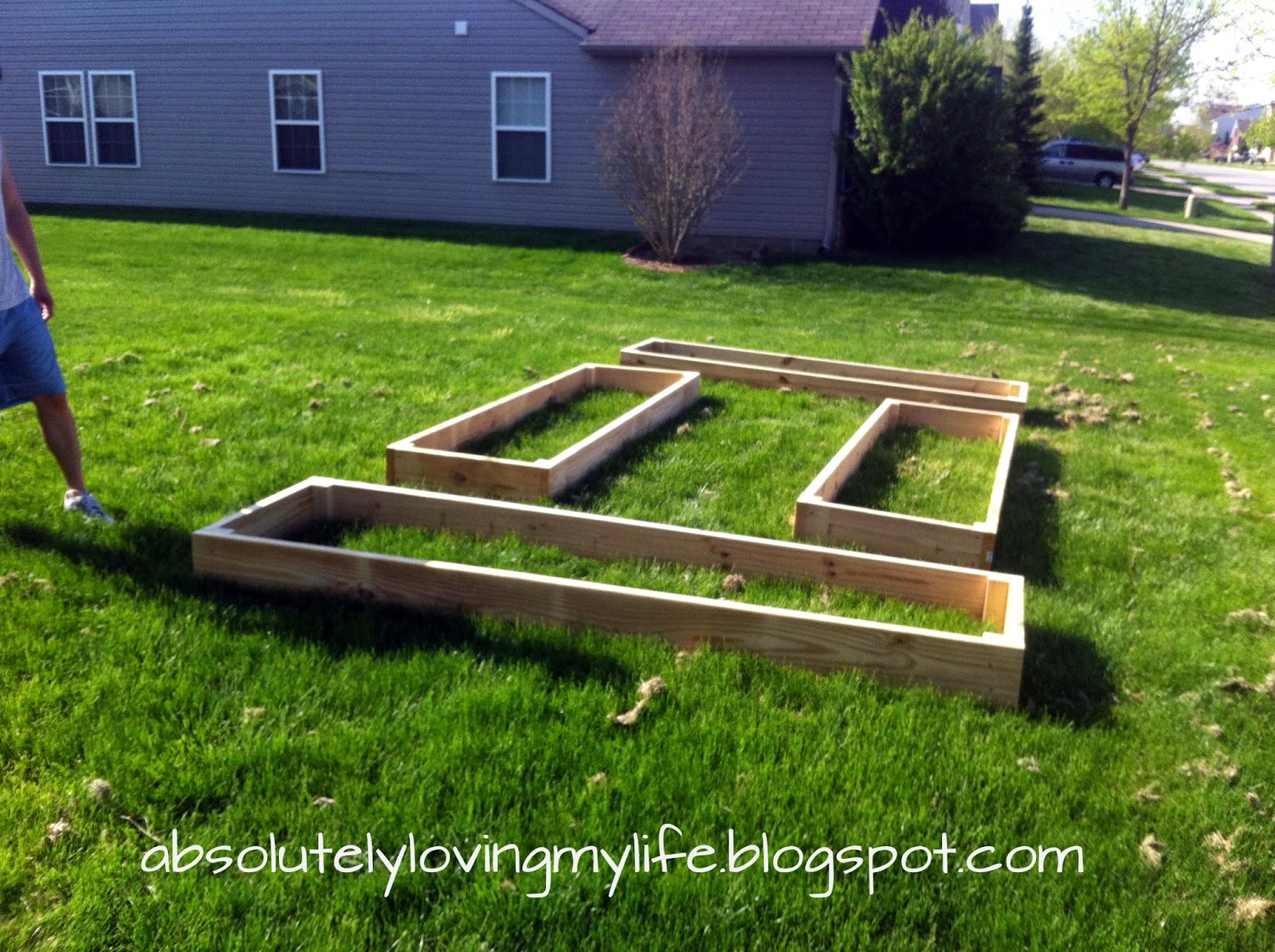 |
Once our boxes were built, we needed to figure out our layout.
|
Step Four: Cut out Grass
Step Five: Put Down Chicken Wire
 |
Since our boxes were two feet wide, the 2ftx25ft chicken wire was perfect! We cut the wire the length of the boxes, placed the wire on top of the dirt, and then placed the boxes on top of the wire.
|
 |
Once all four boxes were lined up.....
|
 |
.....Matt used a mallet to press the boxes into the ground.
|
 |
| Lastly, he loaded the garden soil up in the wheel barrel and filled the boxes with the soil.
Step Seven: Put Chicken Wire Around Garden
|
 |
| The fourth weekend, we planted our garden, put up a chicken wire fence and placed pea gravel in the garden! |
 |
| We also did three tomato plants in pots. |
Step Ten: Label the Plants














No comments:
Post a Comment